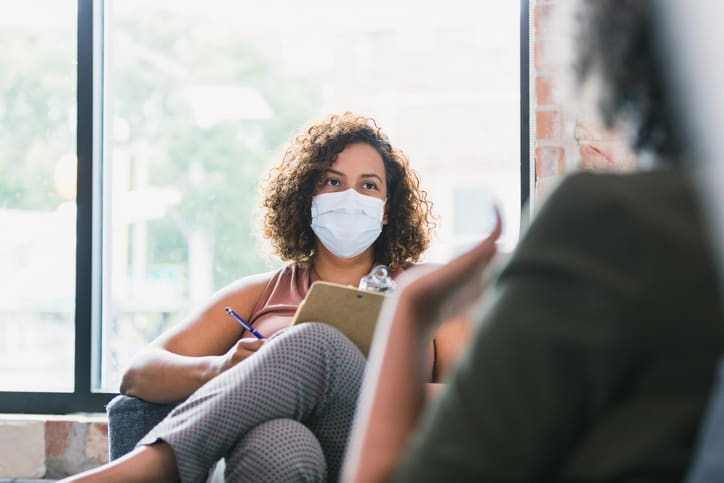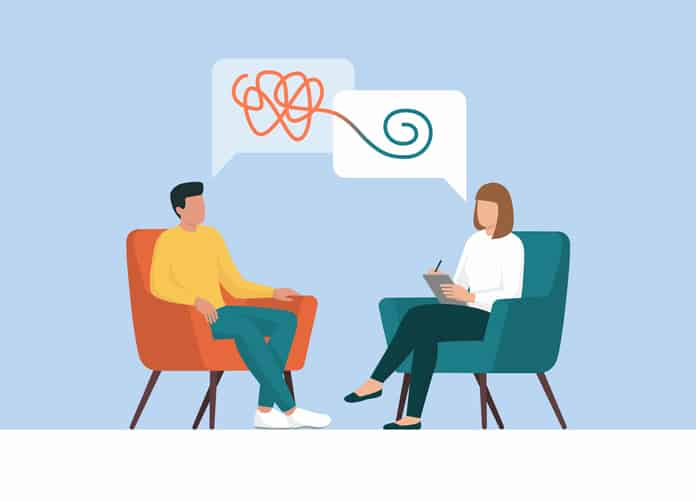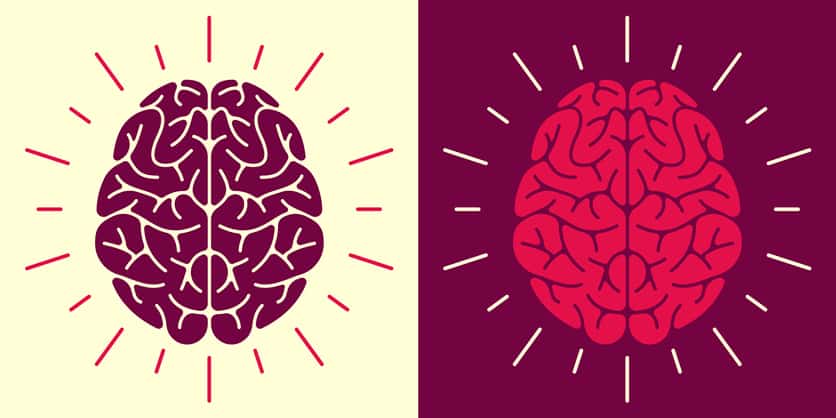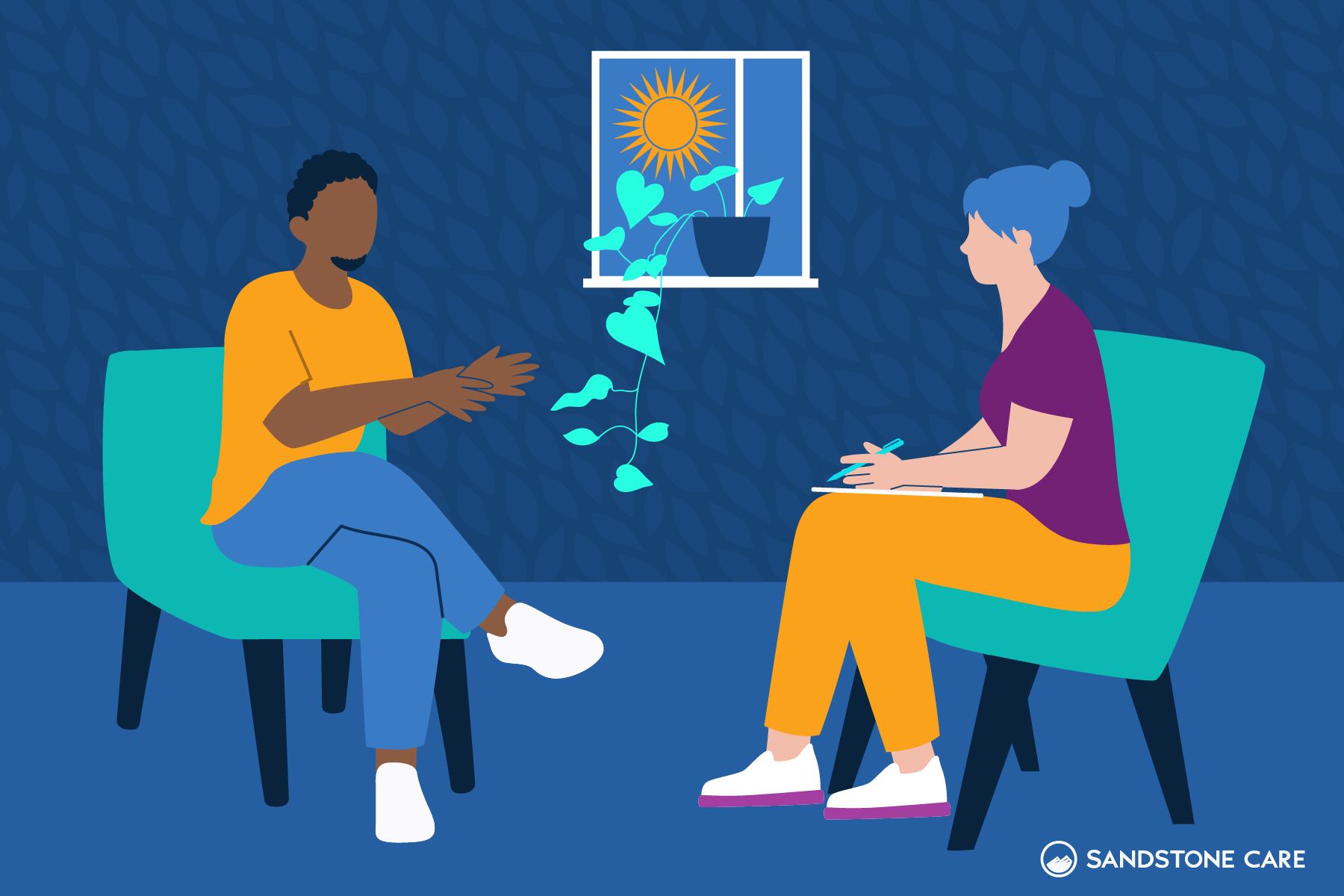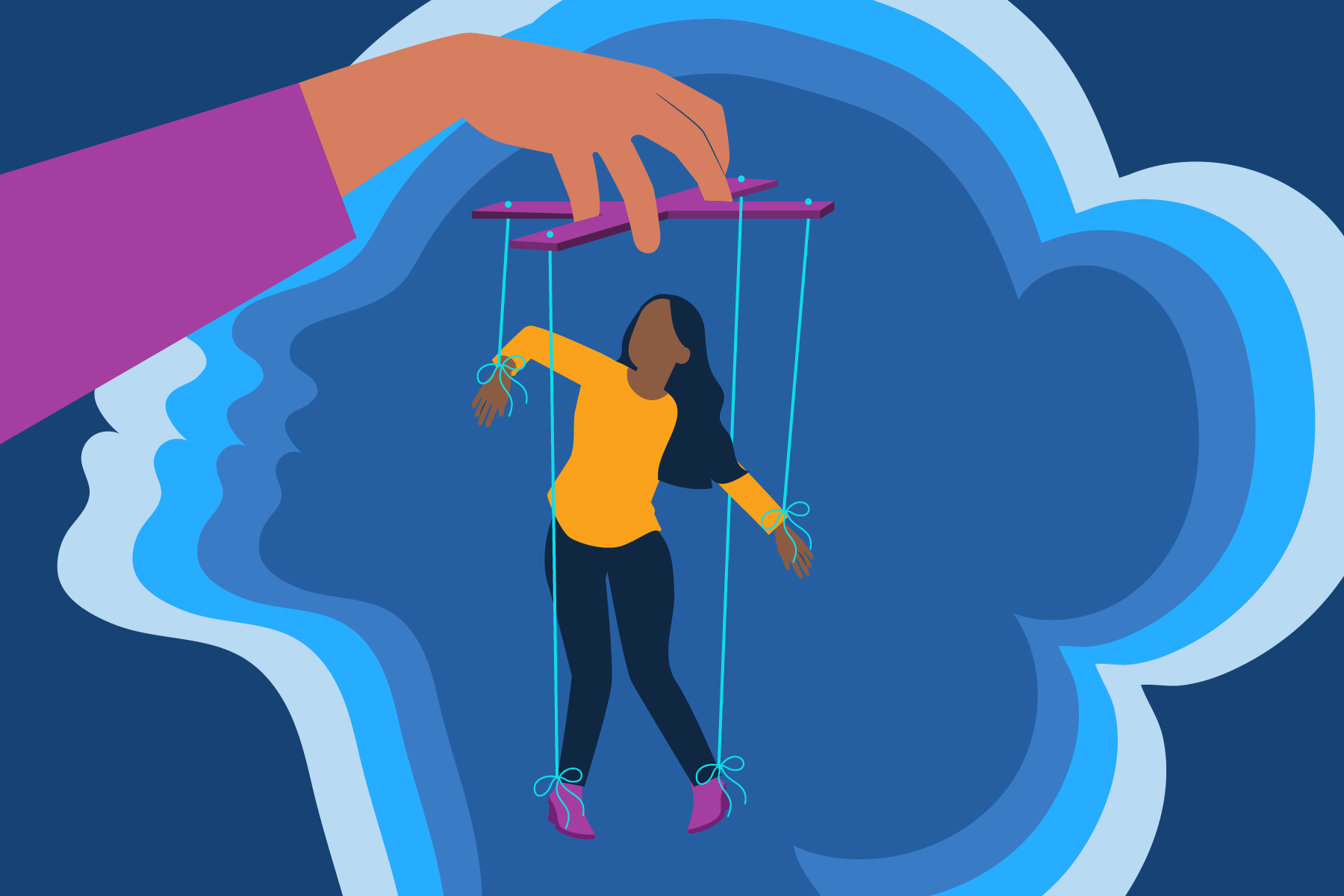Table of Contents
-
- What Kinds Of Patients Do Mental Health Facilities Treat?
- Has The Coronavirus Had An Impact On Mental Health?
- What Services Do Mental Health Facilities Provide?
- How Do I Know If My Healthcare Plan Covers Mental Health Treatment?
- What Practices Do The Best Mental Health Facilities Use?
- What Activities Help Mental Health?
- How Do I Know My Mental Health Is Bad?
What Kinds Of Patients Do Mental Health Facilities Treat?
Mental health facilities treat patients from all walks of life living with behavioral and mental health issues.
Patients with mental health issues can vary in the severity of symptoms. Some might have chronic mental illnesses. Other patients in mental health treatment have a crisis triggering an episode of mental illness.
According to the Centers for Disease Control and Prevention (CDC), “Mental illnesses are among the most common health conditions in the United States.”
- Over 50% of people in the US will have a mental health disorder in their lifetime
- 20% of people in the US will have a mental health issue each year
- 20% of US children currently or at some point have had a serious mental illness
- 4% of people in the US currently live with a severe mental illness (bipolar disorder, schizophrenia, major depressive disorder, or personality disorders)
Mental health issues in the US are also a serious concern for teens and young adults. Mental health treatment programs can help young people overcome mental and behavioral health concerns.
According to Youth.gov, “one in every four to five youth in the general population meet criteria for a lifetime mental disorder that is associated with severe role impairment and/or distress.”
- 11.2% with a mood disorder, such as depression and bipolar disorder
- 8.3% of youth have an anxiety disorder, like obsessive-compulsive disorder (OCD), social anxiety, phobias, and generalized anxiety disorder (GAD)
- 9.6% have behavioral health disorders, like substance use disorder, attention-deficit/hyperactivity disorder (ADHD), oppositional defiant disorder (ODD), and conduct disorder
Patients getting inpatient services at a psychiatric hospital might be dealing with a crisis, such as a suicide attempt or drug overdose. At other mental health facilities, like residential treatment programs, patients might be more stable and seek long-term care.
If you or your loved one have concerns over your mental health, many treatment options can help you. Mental health concerns might be more common than you believe. You can find a treatment program to help you cope and get a handle on your mental health issues.
Has The Coronavirus Had An Impact On Mental Health?
Due to the impact of the coronavirus on everyday life, mental health issues might have increased recently.
Natural disasters, such as hurricanes, earthquakes, and epidemics can increase trauma and mental health issues among the general population. For those with pre-existing mental health conditions, natural disasters can increase negative symptoms.
Joshua A. Gorden, Director of the National Institute of Mental Health (NIMH), states that “much of what we have learned from past disasters and epidemics [regarding mental health] is holding true in the context of the COVID-19 pandemic.”
During the coronavirus pandemic, mental health became a topic of concern among many Americans.
While the pandemic did not impact everyone the same way, nearly everyone felt some change to normal life. You and your loved ones may have struggled due to changes or coping with loss.
Many facilities took safety measures to continue providing substance abuse and mental health treatment during the COVID-19 pandemic. If you or a loved one struggles with stress related to the pandemic, you can find the help you need to get back on track.
In addition, many programs have adopted telehealth or remote services to help people as the pandemic limits face-to-face contact with mental health professionals.
What Services Do Mental Health Facilities Provide?
Mental health facilities provide services to treat a range of mental and behavioral health issues.
Since people of all walks of life experience a variety of disorders, treatment facilities offer many types of services. You might respond to a kind of treatment more than others or have co-occurring issues that need specialized care.
For example, you might need dual diagnosis treatment for mental health and substance use disorder. Substance abuse and mental health often occur together. Many facilities provide substance abuse treatment and detox for dual diagnosis.
You might have other issues related to your mental health conditions. For those with eating disorders, mental health facilities can help you with nutritional counseling to address physical health issues related to your disorder.
Some of the most common services provided at mental health facilities include:
- Psychotherapy
- Also known as “talk therapy,” “one on one counseling,” or “individual therapy”
- Therapy to help you learn healthy ways of thinking and coping with stress
- Group therapy
- Similar to psychotherapy, but with a group of peers
- A mental health professional leads each session of group therapy
- You might role-play to practice social skills, share with one another, and find peer support during group therapy
- Psychiatric care
- Psychiatry is the practice of using medicine to treat mental health conditions
- Medications are beneficial for severe disorders, like schizophrenia and bipolar disorder
- Medications are not a “magic cure;” they help you get to a stable place to learn coping skills during individual or group therapy
- Family therapy
- Many facilities support family members with therapy and support groups
- When you have a loved one with a mental illness, you might become stressed from worry or taking care of them
- Family therapy can help family members manage their own mental health care to best support their loved one
- Behavioral health treatment
- You might need help with other behavioral health issues, like substance use, ADHD, gambling addiction, or an eating disorder
- Behavioral health can contribute to a worsening of mental health issues
- Mental health facilities can also help you with behavioral health to learn healthy behaviors for long-term recovery
Additionally, each facility will have different levels of mental health care and treatment.
Some facilities provide inpatient services, where others are outpatient only. Many treatment centers can provide both types of services and aftercare to help you maintain your mental wellness.
Inpatient treatment services include:
- Psychiatric hospitals
- During a crisis, like suicide, self-harm, or overdose, you might need inpatient services at a hospital
- Services are focused on stabilizing from the immediate crisis
- Short-term, usually one to two weeks
- Detox centers
- If you are recovering from substance use or a dual diagnosis, you might need to go through detox first
- Detox can take a week or longer, depending on severity and substances abused
- Inpatient detox centers can help with the medical care needed during withdrawal from substance abuse
- Some facilities continue mental health services after detox, while others might make a referral to another facility after detox
- Residential treatment programs
- Residential treatment can help you for long-term recovery when you struggle to get well at home
- You reside in a facility that has mental health professionals but is more home-like than a hospital setting
- Residential treatment programs are long-term, usually from one to three months
- Focus is on overall health and well-being in all areas of life
- Might be considered a step-down from a hospital, though you will still have more restrictions than outpatient services
You might get a referral from an inpatient mental health facility for outpatient treatment following your stay. Most psychiatric hospitals will refer you to a step-down level of care, like residential services or outpatient therapy.
Types of outpatient mental health treatment services include:
- Partial Hospitalization Programs (PHP)
- As with all outpatient services, you do not reside within the facility providing PHP
- PHP is often four to five days a week during regular business hours for about four weeks
- PHPs take up a majority of your day, usually about six hours per day
- Teach coping skills, provide group support, individual therapy, and other support to help you recover from mental health issues
- Great for those still needing significant support following an inpatient hospitalization
- Intensive Outpatient Programs (IOP)
- Similar to PHP, but less time consuming and more flexible in scheduling
- IOPs help you after regular work or school hours, usually for a few days a week for about three hours per session
- Both IOP and PHP are best for people who are stable and safe to continue treatment in their home environments
- Other outpatient mental health services
- Facilities might provide other types of care through their facilities
- You might continue to see a psychiatrist or therapist from your inpatient facility
- Many programs also offer aftercare treatment plans following the more intensive outpatient services (like PHP or IOP)
- By stepping down with the same healthcare provider, you can transition easily from higher to lower levels of care
Mental health facilities offer a range of support and varying levels of care to help you with your current treatment needs.
How Do I Know If My Healthcare Plan Covers Mental Health Treatment?
You can call your healthcare insurance provider to find out if your plan covers mental health treatment.
Marketplace plans from HealthCare.gov consider mental and behavioral health coverage an essential health benefit. These plans also cover drug rehab program as part of mental health coverage.
Always call your insurance provider to check what types of coverage that you have for mental health treatment. Some health insurance carriers have limits on certain psychiatric disorders, long-term treatment, and substance use disorders.
Many treatment facilities have staff available to answer any questions about insurance coverage. They might be able to help with out-of-pocket expenses if your insurance does not cover everything in your treatment program.
What Practices Do The Best Mental Health Facilities Use?
The best mental health facilities use various practices to provide individualized mental health care for each person.
By having a variety of practices, you can find a treatment approach that will work for you or your loved one. The best facilities do not use a “one-size-fits-all” approach in their treatment.
You might respond to different styles of treatment based on diagnosis, personality, and where you are in your life. Your mental health impacts all other areas of your life, like socializing or keeping a job.
The best mental health facilities focus on whole-health recovery from mental health and substance use disorders.
Recovery is a term describing ongoing treatment for mental health and substance use disorders. While “recovery” once only applied to substance abuse, many mental health facilities have adopted the term for the ongoing process of healing from mental illness.
Mental health can impact physical, social, academic, and vocational wellness. Often these other areas of your well-being can also affect your mental health.
For example, if your teenager has a psychiatric condition like ADHD, they might struggle with academics. When kids fail or get held back, they might be bullied or struggle to fit in. This creates issues with self-esteem, which can cause anxiety or depression.
The best mental health facilities offer programs and help for all dimensions of well-being to get to the root of mental illness and prevent a relapse of symptoms.
Always remember that the best treatment for mental health is the treatment that works best for you!
What Activities Help Mental Health?
Some of the following activities can help you with your mental health:
- Exercise, even just a short walk around the block, can have a huge impact
- Calling a friend or loved one for support
- Journaling about your feelings or finding three things to feel grateful for can help you look for the positive things in life
- Meditation and breath worth can help you relax and calm down when things feel overwhelming
- Finding a creative outlet, like art, creative writing, or music
- Diversionary activities, like puzzles, games, and crafts to keep yourself from overthinking
- Completing a chore, like doing laundry, cleaning your room, working on your car, caring for a pet, and other tasks can help your mental health in the moment
While these activities will not cure a serious mental health issue, you can take your mind off things for a bit. You can feel better by moving and keeping your mind occupied when things feel out of control.
Just remember that mental health issues do not just “go away,” and you or your loved one will need some type of help to get better mentally.
Self-care activities can help you stay mentally healthy, but they are not a substitute for treating serious issues. If you have a mental health concern, you should get support and help before things get worse or you end up in a crisis.
How Do I Know My Mental Health Is Bad?
You can look for some of the following signs to know if your mental health is bad:
- Excessive feelings of worry, doubt, sadness, or guilt
- Everyone feels these negative emotions from time to time
- When these feelings linger or come out of nowhere, you might be struggling with your mental health
- Irritability or emotional outbursts
- You might “lash out” or feel “on-edge”
- If you find yourself being short with others, losing your temper for minor issues, or “snapping” at others, your mental health might be of concern
- Changes in sleep patterns
- Either too much or too little sleep
- A restless and anxious mind might struggle with insomnia
- When feeling depressed, you might oversleep, as depression consumes all of your energy to get through the day
- Unexpected weight changes
- Some people gain weight while depressed if they eat to cope with stress or stop exercising due to lack of energy
- Others might lose their appetite due to anxiety or excessive worry
- Substance abuse
- Alcohol and drug abuse are often rooted in an underlying mental health issue
- If you or a loved one are using drugs or drinking more than usual, this behavior might be self-medicating with substances
- Withdrawing from others
- While dealing with a mental health issue, you might spend more time alone than usual
- Isolating behaviors can be due to depression or other mental health issues
- Isolation due to the pandemic can also feed into mental health concerns, like depression and anxiety
- Loss of interest in preferred activities
- When your mental health is bad, you might not experience pleasure the same way
- You or a loved one might lose interest in hobbies, social activities, work, school, or other pursuits
With any of these signs, you want to look for changes. For example, if you are generally happy and sociable but find yourself isolating, you might have depression. However, some people prefer quiet time to themselves and are not showing signs of depression.
A loved one might point out these changes to you, saying things like, “you don’t seem like yourself lately.” If the people closest to you notice significant changes to your behavior, attitude, and well-being, you might be struggling with your mental health.
Always talk to your primary care physician or family doctor about any of these issues first.
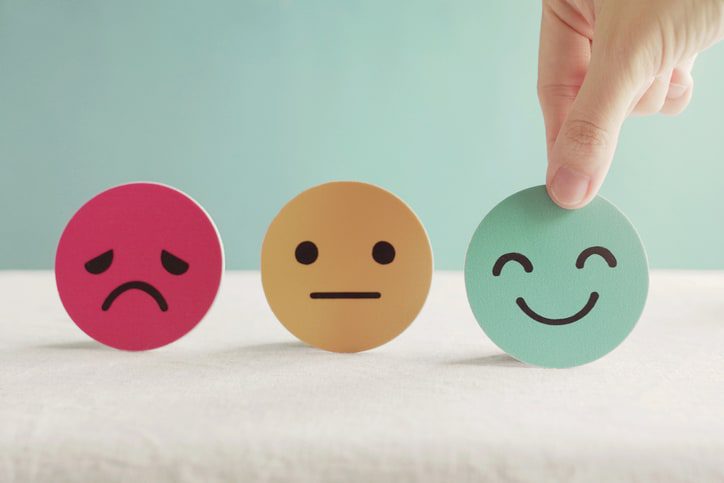
Hand choosing green happy smiley face paper cut, product, user, service feedback rating and customer reveiw, experience, satisfaction survey, psychology mental health test concept
Sometimes, changes like these can be a sign of a physical health issue. Your doctor might make a referral to mental health or psychiatric treatment if you do not have an underlying physical health issue at the root of these symptoms.
If you are concerned about your mental health and worry about a crisis, you can check yourself into a facility. For parents, you might be able to request mental health services for your child in most states until they are 17 years old.
Mental health issues can be treated. You and your loved one deserve to live a happy and healthy life, and treatment can give you hope and healing for your mental health.
Mental health facilities can offer an array of options and levels of support depending on the needs of you or your loved one. Sandstone Care is here to treat teens and young adults with mental health disorders. Call (888) 850-1890.



